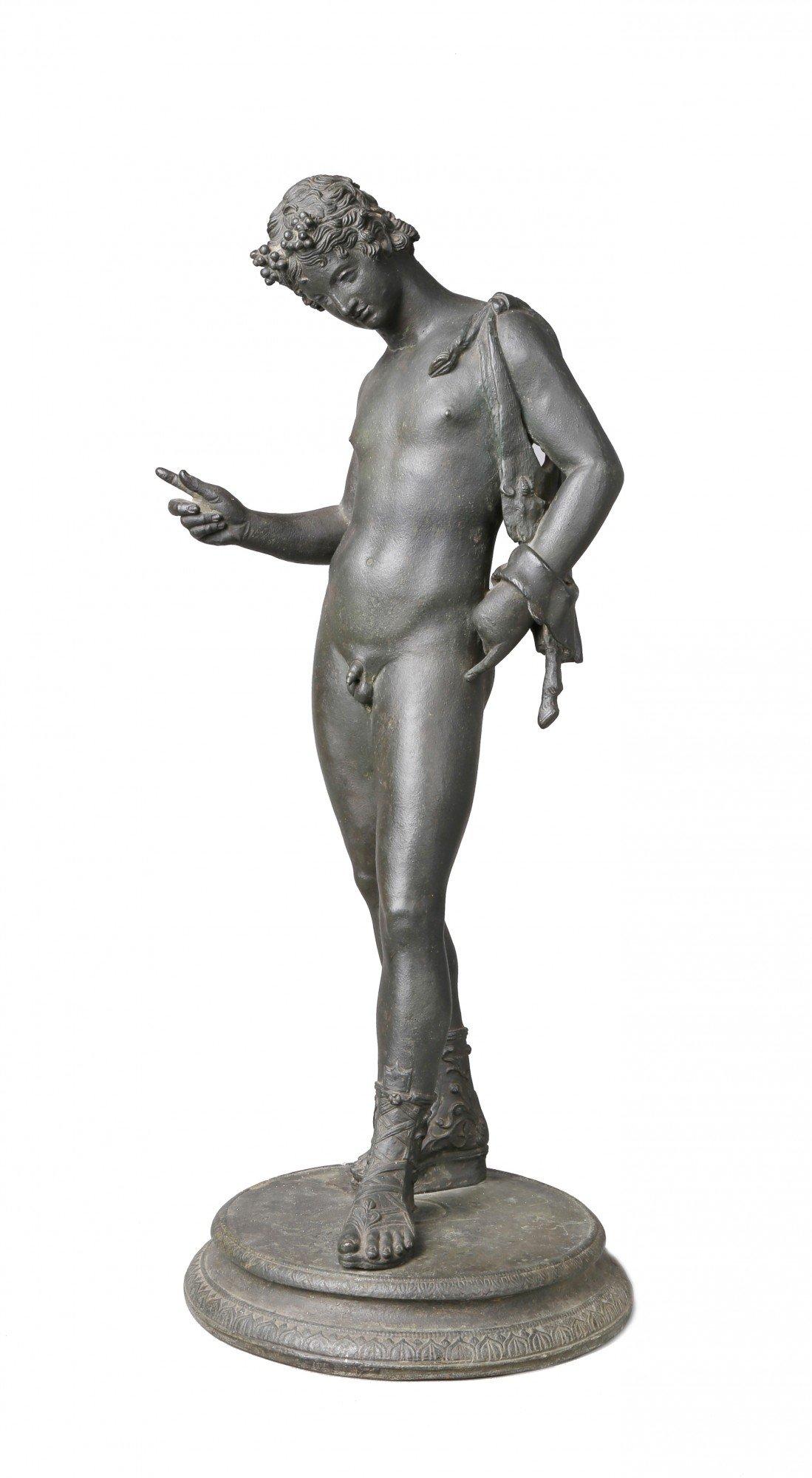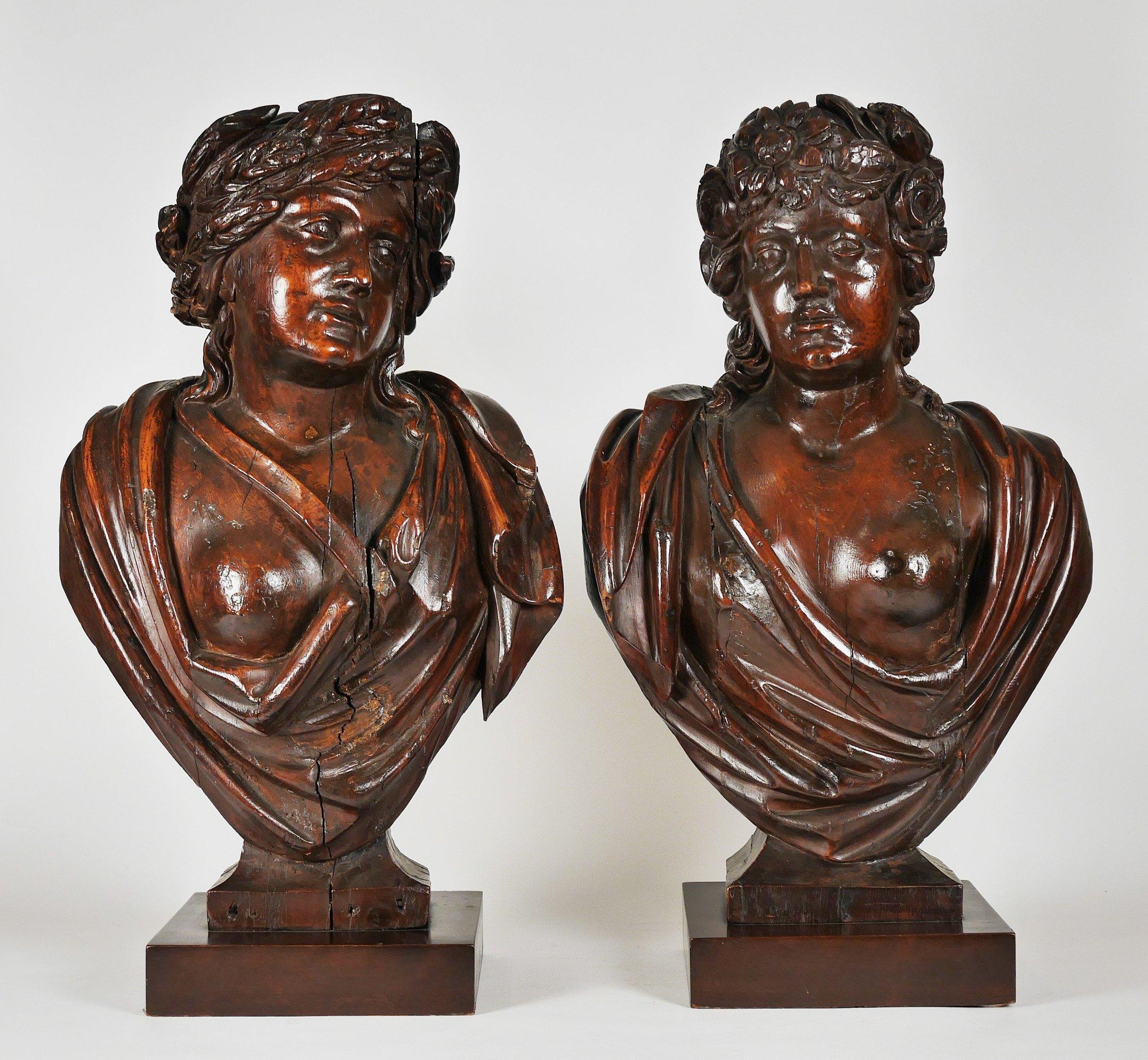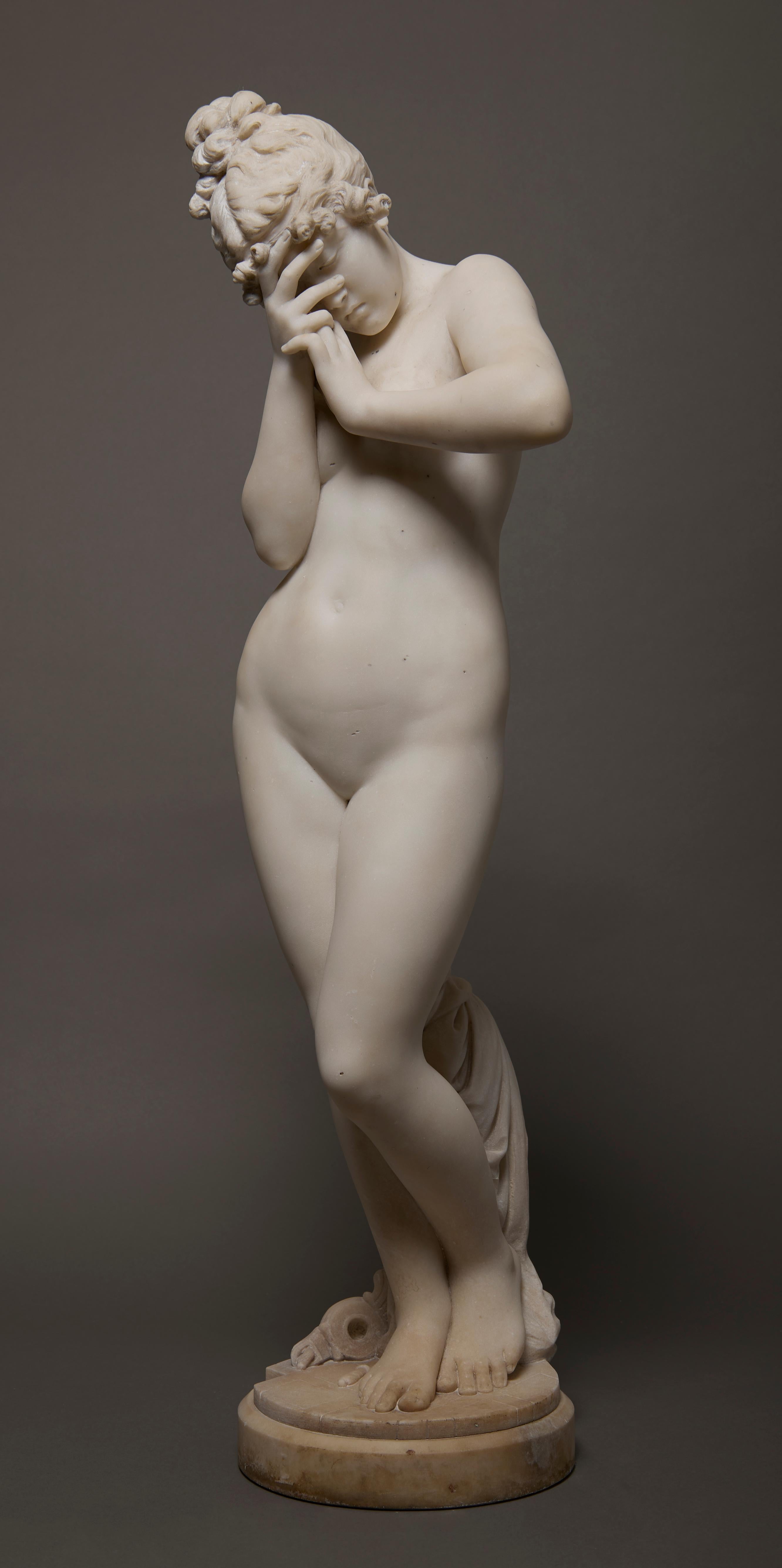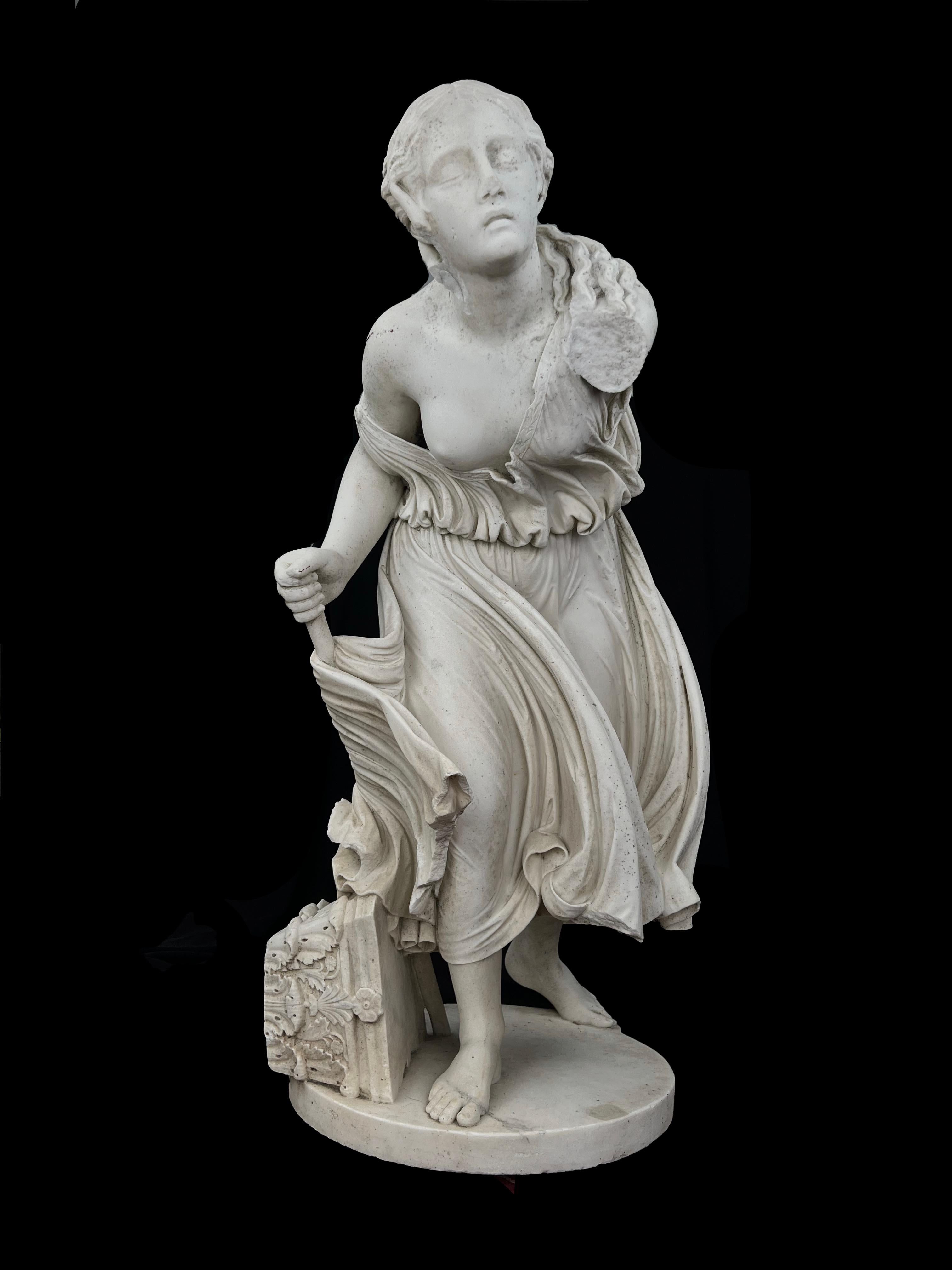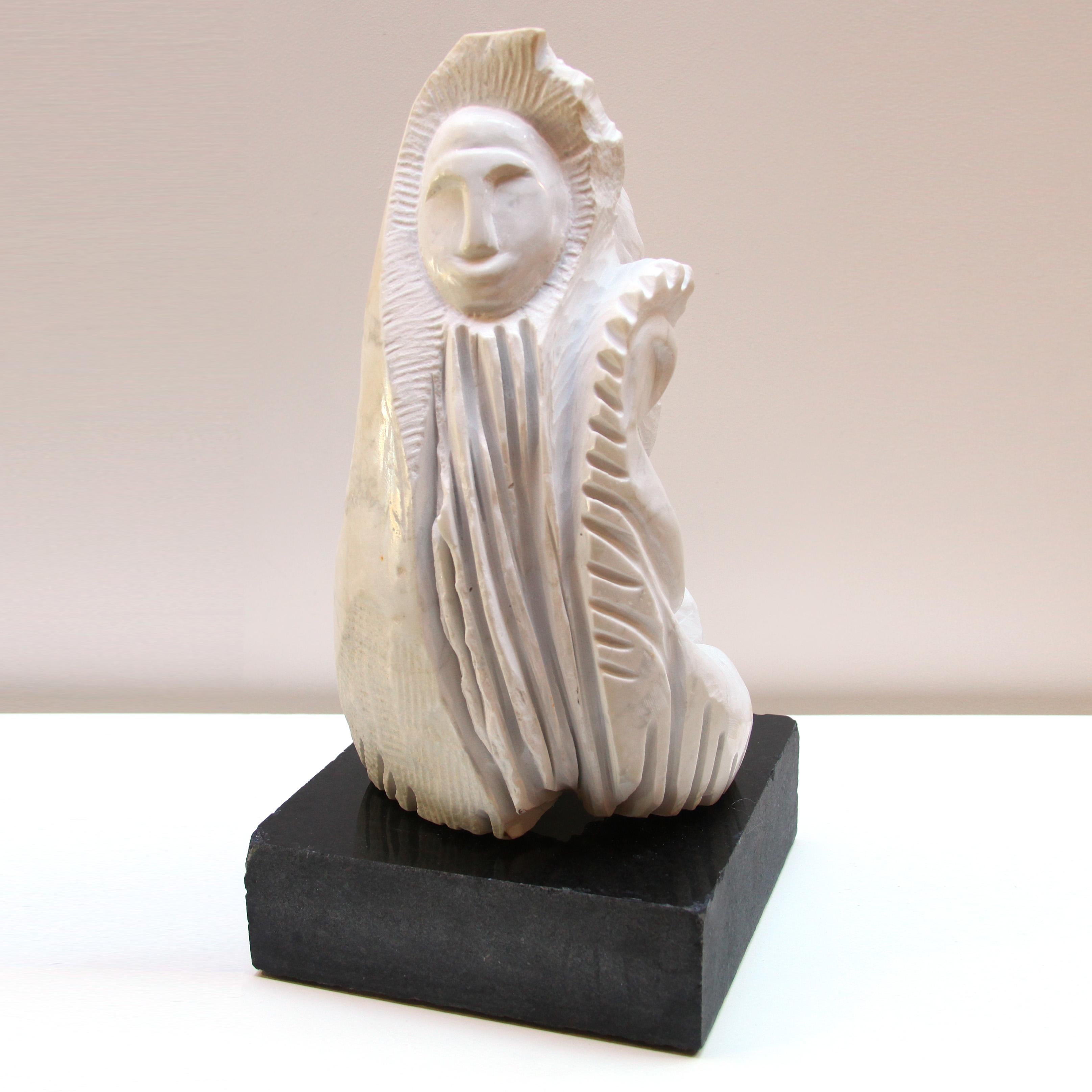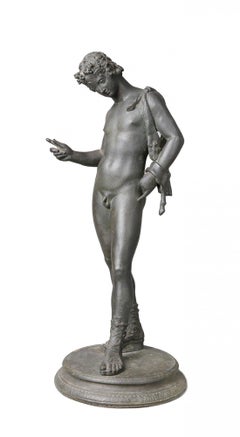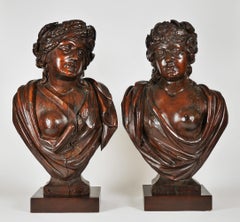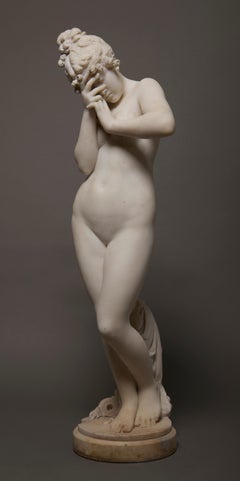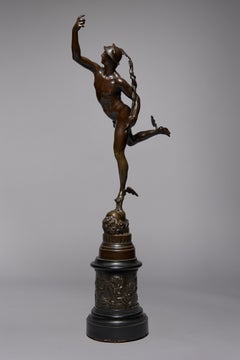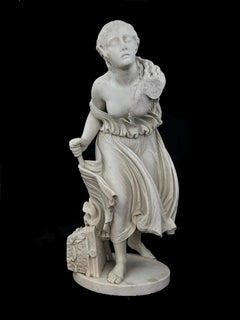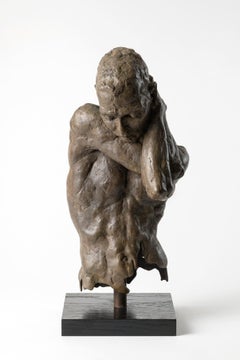Items Similar to Early 19th Century Italian School Bronze, The Borghese Gladiator, c. 1810
Want more images or videos?
Request additional images or videos from the seller
1 of 15
UnknownEarly 19th Century Italian School Bronze, The Borghese Gladiator, c. 1810c. 1810
c. 1810
On Hold
$4,750
On Hold
£3,686.89
On Hold
€4,200.62
On Hold
CA$6,788.27
On Hold
A$7,392.93
On Hold
CHF 3,898.04
On Hold
MX$89,919.40
On Hold
NOK 49,017.64
On Hold
SEK 45,974.53
On Hold
DKK 31,367.24
About the Item
Early 19th Century Italian School
The Borghese Gladiator, c. 1810
Bronze with green patination
27 x 18 x 26 inches
This sculpture appears to have had a fig leaf at some point and there is a stress crack on his right ankle and a crack on the bottom of his left foot (images of condition attached).
Since its discovery in the early seventeenth century, the Borghese Gladiatorhas been praised as an aesthetic model of the male nude in motion. It was endlessly copied, modeled and adapted by both modern and contemporary artists. The statue was unearthed south of Rome, at Anzio (ancient Antium), during excavations carried out under the aegis of Cardinal Scipion Borghese. The Cardinal added it to his collection shortly before 1611, and it was restored by Nicolas Cordier, who completed it by adding the right arm. In 1808, the statue left Italy for the Louvre, following the purchase of the collection by Napoleon I from his brother-in-law, Prince Camille Borghese. For a long time, it was erroneously thought that the figure was a gladiator (despite the fact that the Greeks did not hold gladiatorial circus entertainments), before the shield strap on its left arm identified him as a warrior. Our hero defends himself energetically, thrusting his torso forward in a movement that is both defensive and self-protective. Protected behind his shield, he prepares to riposte, his face turned sharply towards his opponent (perhaps a horseman?).
From the website of The Louvre, Paris
- Creation Year:c. 1810
- Dimensions:Height: 27 in (68.58 cm)Width: 18 in (45.72 cm)Depth: 26 in (66.04 cm)
- Medium:
- Movement & Style:
- Period:1810-1819
- Condition:
- Gallery Location:Beachwood, OH
- Reference Number:1stDibs: LU1768213615832
About the Seller
5.0
Gold Seller
Premium sellers maintaining a 4.3+ rating and 24-hour response times
Established in 1975
1stDibs seller since 2022
41 sales on 1stDibs
Typical response time: 1 hour
- ShippingRetrieving quote...Shipping from: Beachwood, OH
- Return Policy
Authenticity Guarantee
In the unlikely event there’s an issue with an item’s authenticity, contact us within 1 year for a full refund. DetailsMoney-Back Guarantee
If your item is not as described, is damaged in transit, or does not arrive, contact us within 7 days for a full refund. Details24-Hour Cancellation
You have a 24-hour grace period in which to reconsider your purchase, with no questions asked.Vetted Professional Sellers
Our world-class sellers must adhere to strict standards for service and quality, maintaining the integrity of our listings.Price-Match Guarantee
If you find that a seller listed the same item for a lower price elsewhere, we’ll match it.Trusted Global Delivery
Our best-in-class carrier network provides specialized shipping options worldwide, including custom delivery.More From This Seller
View AllGrand Tour Bronze Sculpture of Dionysus, 19th Century Italian School
Located in Beachwood, OH
19th Century Italian School
Grand Tour Bronze Sculpture of Dionysus, 19th Century
Bronze with black-green patination
24 x 10 x 10 inches
Dionysus, in Greco-Roman religion, a nature ...
Category
19th Century Italian School Figurative Sculptures
Materials
Bronze
18th Century Italian Carved Neoclassical Semi Nude Female Busts
Located in Beachwood, OH
18th Century Italian Carved Neoclassical Semi Nude Female Busts
Wood affixed to wood plinths
"Leone Della Torra / Italy Country of Origin" labels on b...
Category
18th Century Italian School Figurative Sculptures
Materials
Wood
Frine (Phryne), 19th Century Large Marble Sculpture of Nude Woman
Located in Beachwood, OH
Ercole Rosa (Italian, 1846 - 1893)
Frine (Phryne)
Marble
Signed 'E. Rosa, Studio O. Andreoni, Roma' on back
34.5 x 12 x 10 inches
80 lb.
Phryne was a 4th century BC famous Greek ...
Category
19th Century Italian School Figurative Sculptures
Materials
Marble
Mercury Standing on the Breath of Zeus, Antique Grand Tour
By Giambologna
Located in Beachwood, OH
After Giambologna (Italian, 1529-1608)
Mercury Standing on the Breath of Zeus
Bronze
27.5 x 14.25 x 5.5 inches
The sculpture depicts Mercury wearing his winged helmet and sandals and holding a caduceus. Created after one of Giambologna's most celebrated sculptures in the Renaissance, Mercury, was designed as part of a fountain for the Villa Medici in Rome.The head on which Mercury steps symbolizes the figure being “exhaled, purified, unburdened.” When the Giambologna sculpture...
Category
19th Century Figurative Sculptures
Materials
Bronze
20th Century French School Large Bronze Sculpture of a Semi-Nude Dancer
Located in Beachwood, OH
20th Century French School
Dancer
Patinated bronze
38 x 18.5 x 9 inches
Provenance: The Tatti Family Collection
Category
20th Century Figurative Sculptures
Materials
Bronze
Contortionist Nude, 20th Century Bronze of Nude Female, Cleveland Artist
Located in Beachwood, OH
David Deming (American, 20th Century)
Contortion Nude
Bronze
Signed on base
14 x 12 x 9 inches
David Deming is a nationally recognized contemporary Ameri...
Category
Late 20th Century Figurative Sculptures
Materials
Bronze
You May Also Like
Musidora
Located in PARIS, FR
"Musidora"
by Odoardo FANTACCHIOTTI (1809-1877)
Sculpture made in white Carrara marble
signed on the side on the base " O. Fantacchiotti "
Italy
around 1862
height 110 cm
diameter ...
Category
1860s Italian School Nude Sculptures
Materials
Marble
NYDIA, THE BLIND FLOWER GIRL OF POMPEII Marble Sculpture 1856-1870
Located in Soquel, CA
Randolph John Rogers (American, 1825 - 1892) Randolph Rogers' Nydia, the Blind Flower Girl of Pompeii debuted in 1856 to critical and public acclaim, solidifying Rogers’ position as a pre-eminent American sculptor and it remains one of the artist’s most celebrated works today. The subject of Nydia is drawn from Edward Bulwer-Lytton's The Last Days of Pompeii 1834. After touring the ruins of the ancient city in 1833, and inspired by the stories of blinding volcanic ash, he composed the tale of Nydia, a slave who led her master, Glaucus, to safety. Rogers depicts Nydia at the moment that she and Glaucus have become separated in their perilous journey through the rubble and Nydia seeks familiarity in the surrounding chaos, her distress evident in her pained expression. The grace of the sculpture is at odds with the turmoil portrayed; a toppled Corinthian capital lies at her feet and obstructs her next step, indicated by the tilt of her back foot and grip on her walking stick. Examples of this model can be found in major American collections, including The Metropolitan Museum of Art, the Art Institute of Chicago, the Detroit Institute of Arts, the Los Angeles County Museum of Art, and the Museum of Fine Arts, Boston.
Literature, Millard F Rogers, Jr. Randolph Rogers, American Sculptor in Rome. University of Massachusetts Press, 1971, American Figurative Sculpture in the Museum of Fine Arts Boston. Museum of Fine Arts, Boston, 1986. Joyce K Schiller. "Nydia, A Forgotten Icon of the Nineteenth Century." Bulletin of the Detroit Institute of Arts,
Born in Waterloo, New York, Randolph John Rogers became an expatriate* sculptor of idealized figures, portraits, and commemorative works in Neo-Classical* and Realist* styles. He worked in clay, plaster, marble and bronze, and lived both in Italy and the United States. He made 167 examples of Nydia in two sizes (varies depending on base height) 36" and 54'.
Rogers was raised in Ann Arbor, Michigan, and as a young man did woodcuts* for the local newspaper, The Michigan Argus, and also worked as a baker's assistant and a dry goods clerk. In 1847, he moved to New York City, where he hoped to find work as an engraver*, but failing to do so, worked in a dry goods store owned by John Steward...
Category
1850s Italian School Figurative Sculptures
Materials
Marble
$12,000 Sale Price
20% Off
Figurative Marble Sculpture, "Kindred"
By TONY GANGITANO
Located in San Diego, CA
This is a one of a kind Italian white Carerra marble sculpture by San Diego artist Tony Gangitano. Its dimensions are 10" x 25" x 10". It is on a black granite base. A certificate of authenticity will follow delivery.
This sculpture is a representation of Mary and Christ...
Category
2010s Italian School Figurative Sculptures
Materials
Granite, Marble
Folded Arms Study Dripping Torso Fragment
Located in London, GB
Bronze (silver nitrate patina)
Numbered 8/9
40cm × 24cm × 20cm
Pratley is a Sculptor working from life models in his West London studio. His inspirations range from ancient Greek ma...
Category
2010s English School Figurative Sculptures
Materials
Bronze
Folded Arms Study (Full Figure)
Located in London, GB
Bronze
Numbered 5/9
87cm × 44cm × 21cm (incl. base)
Pratley is a Sculptor working from life models in his West London studio. His inspirations range from ancient Greek masterpieces ...
Category
2010s English School Nude Sculptures
Materials
Bronze
Demian Undressing
Located in London, GB
Bronze
Numbered 1/10
66cm × 26cm × 36cm (incl. base)
Ian Rank-Broadley is one of the foremost sculptors working today. His effigy of the late Queen Elizabeth II appears on all UK an...
Category
2010s English School Figurative Sculptures
Materials
Bronze
